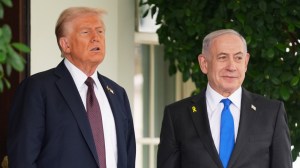Stay updated with the latest - Click here to follow us on Instagram
Queen’s death, changes at 10 Downing Street: Events that shaped UK politics in 2022
Here's a look at the top events from the United Kingdom which grabbed international headlines during the year.
 From Boris Johnson’s resignation, two subsequent runs for a Prime Minister, and Queen Elizabeth’s death, to the financial crisis — for the United Kingdom, the year 2022 was no less than a rollercoaster ride. (Photo: AP & Reuters)
From Boris Johnson’s resignation, two subsequent runs for a Prime Minister, and Queen Elizabeth’s death, to the financial crisis — for the United Kingdom, the year 2022 was no less than a rollercoaster ride. (Photo: AP & Reuters) From Boris Johnson’s resignation, two subsequent runs for a Prime Minister, and Queen Elizabeth’s death, to the financial crisis — for the United Kingdom, the year 2022 was no less than a rollercoaster ride. Take a look at the top events from the UK which grabbed international headlines during the year.
UK’s stance on Russian invasion of Ukraine
As Russia began its invasion of Ukraine in the month of February, the then Prime Minister of UK Boris Johnson and his government stepped up efforts to isolate Russia’s President Vladimir Putin’s government. Johnson, during a virtual interaction with NATO leaders, announced that his government would impose sanctions on Russian President Vladimir Putin and Foreign Minister Sergei Lavrov.
 British Prime Minister Boris Johnson speaks to media next to 10 Downing Street in London, while resigning from the position. (AP)
British Prime Minister Boris Johnson speaks to media next to 10 Downing Street in London, while resigning from the position. (AP)
Johnson also declared a mission to establish an international coalition against Russia and wean off dependence on its oil and gas exports. These sanctions, in addition to banning ships with Russian connections from entering British ports, led Russia’s foreign ministry to bar entry to various British government officials, including Johnson, to the country.


After the newly-elected Prime Minister Rishi Sunak assumed office in the month of October, representatives from the UK stood firm on their “call on Russia to end … illegal acts that have caused so much suffering in Ukraine and worldwide,” at the UNSC Counter Terrorism Committee meet in Delhi.
UK-Rwanda deal on asylum seekers
In April, the United Kingdom signed a deal with Rwanda to send asylum seekers, particularly, single men arriving on boats or trucks, to the East African nation. According to an Associated Press report, the country paid the Rwandan government £120 million for housing and integrating the migrants, supposed to be lasting for the first five years.


The law was formulated with the aim of improving the UK’s asylum system, which according to the country’s then Home Secretary Priti Patel, had been struggling to deal with “a combination of real humanitarian crises and evil people smugglers profiteering by exploiting the system for their own gains.” The new plan, Boris Johnson announced, would not allow any boat to enter the UK undetected. He emphasised that people arriving illegally “could potentially be prosecuted,” within the plan.
Soon after the officiation of the deal, human rights organisations and activists expressed their concerns. Highlighting the absence of sufficient safeguards, the United Nations Refugee Agency (UNHCR) stated that asylum-seekers must “not be traded like commodities and transferred abroad for processing.” Moreover, Human Rights Watch made a clear statement on Rwanda’s record of extrajudicial killings, abusive prosecutions, torture, and other forms of violence inflicted upon dissidents.
Boris Johnson resigns; Prime Ministerial race begins
Battered by endless scandals and crises for a year, Boris Johnson finally resigned from his position on July 7, 2022. Initially, Johnson hung onto power, arguing that he was exercising a mandate from the voters to continue his time in office.
He, however, was compelled to resign soon after about 50 senior lawmakers submitted their resignations, following the ethics scandal around Johnson’s leadership, which eventually made it difficult for him to rule the country.
Hit by a heatwave
Meanwhile, human-induced climate change, particularly, increasing temperatures, enhanced the possibility of droughts in parts of the UK and Europe at large. Mid-July, parts of England were hit by a heatwave condition, pushing temperatures to over 40 degrees in various regions.
 A placard reading “thank you for your service “is seen, as firefighters work to extinguish a forest fire during a heatwave, in Rehberg, district of Falkenberg, Germany, July 26, 2022. (Photo: Reuters)
A placard reading “thank you for your service “is seen, as firefighters work to extinguish a forest fire during a heatwave, in Rehberg, district of Falkenberg, Germany, July 26, 2022. (Photo: Reuters)
Britain issued its first-ever red “extreme heat” warning, and declared a national emergency for two days during the month, when temperatures were predicted to soar higher.
In Europe at large, heatwaves this year led to severe droughts in many regions, shrinking the water levels in its biggest rivers – Rhine, Po, Loire, and Danube. Portugal, Spain, France and Croatia too witnessed wildfires over the year, severely impacting food production and livelihoods.
Liz Truss becomes UK’s Prime Minister for six weeks
Two months after Johnson’s resignation, on September 5, Liz Truss won the Conservative Party leadership contest , and became the country’s Prime Minister the following day.
At the time of the contest, the UK was dealing with an energy crisis, driven by Russia’s invasion of Ukraine. Moreover, the COVID-19 pandemic and Brexit had tossed UK inflation rates above 10% for the first time in four decades. The Bank of England predicted that it could hit 13.3% in the coming months, leading to a prolonged recession by the end of 2022.
 Speaking outside the door of her Number 10 Downing Street office, Truss accepted that she could not deliver the promises she made when she was running for Conservative leader, having lost the faith of her party. (Photo: Reuters)
Speaking outside the door of her Number 10 Downing Street office, Truss accepted that she could not deliver the promises she made when she was running for Conservative leader, having lost the faith of her party. (Photo: Reuters)
The economic crisis triggered strikes by train drivers, port staff, lawyers and daily workers where they presented their demands for pay hikes.


Soon after presuming office, Truss, an admirer of Margaret Thatcher, announced her plans to radically reshape Britain’s economy, deal with the energy crisis, ease labour unrest and improve the country’s health infrastructure. As a result of being selected by less than 0.5 per cent of British adults, the pressure to deliver quick results mounted upon her.
2022 was also the year when the handover of power took place at Balmoral, instead of Buckingham Palace in London — a first in Queen Elizabeth’s 70-year reign
However, Truss’ leadership lasted only for six weeks. During her term, the British government’s announcement of a stimulus package that included 45 billion pounds (USD 50 billion) in tax cuts, to be paid for by government borrowing, sent the currency to a record low against the dollar. Following the loss, the Bank of England intervened to bolster the bond market. Fears that it will soon hike interest rates made mortgage lenders withdraw their cheapest deals, causing a market turmoil. Truss’ government then took a U-turn and decided to scrap the tax cuts for the country’s wealthy population.
Truss’ attempt at market correction failed dramatically. Struggling to survive, she fired Kwasi Kwarteng, the finance minister under her leadership and her closest political ally. Kwarteng later came to be replaced by Jeremy Hunt.
With her resignation, Liz Truss became the shortest-serving Prime Minister in British history
Conservative lawmakers expressed their agitation — following Truss’ abandonment of economic plans and the firing of senior ministers in the government — and demanded her resignation. Approval ratings for her and her party also collapsed.
On October 20, the Prime Minister announced her resignation outside Number 10 Downing Street, accepting that she had lost her party’s faith.
Queen Elizabeth II dies at 96
 The funeral of Her Majesty Queen Elizabeth II. Mourners line the route as the Queens Coffin is transported along The Mall towards Buckingham Palace September 19, 2022. (Photo: Reuters)
The funeral of Her Majesty Queen Elizabeth II. Mourners line the route as the Queens Coffin is transported along The Mall towards Buckingham Palace September 19, 2022. (Photo: Reuters)
Amidst the political and economic events that unfolded in Britain soon after Truss’ appointment as PM, the longest-serving monarch Queen Elizabeth II died on September 8. With her death, her 73-year-old son Charles assumed power as the monarch.
UK gets an Indian-origin Prime Minister
Late October, Rishi Sunak came to be appointed as Britain’s first Indian-origin Prime Minister, after his rivals Boris Johnson and Penny Mordaunt stepped down from the race to replace Liz Truss. For Indians, Sunak’s occupancy of the position was claimed to be a “watershed moment.”
Warmest congratulations @RishiSunak! As you become UK PM, I look forward to working closely together on global issues, and implementing Roadmap 2030. Special Diwali wishes to the ‘living bridge’ of UK Indians, as we transform our historic ties into a modern partnership.
— Narendra Modi (@narendramodi) October 24, 2022
However, Sunak’s term so far has not been without political stresses. In November, Sunak began to face pressure from members of the Opposition as one of his closest allies Sir Gavin Williamson resigned from the Cabinet. Williamson grabbed headlines after being accused of abusive behavior towards fellow Conservative Party colleagues and civil servants.





- 01
- 02
- 03
- 04
- 05


























